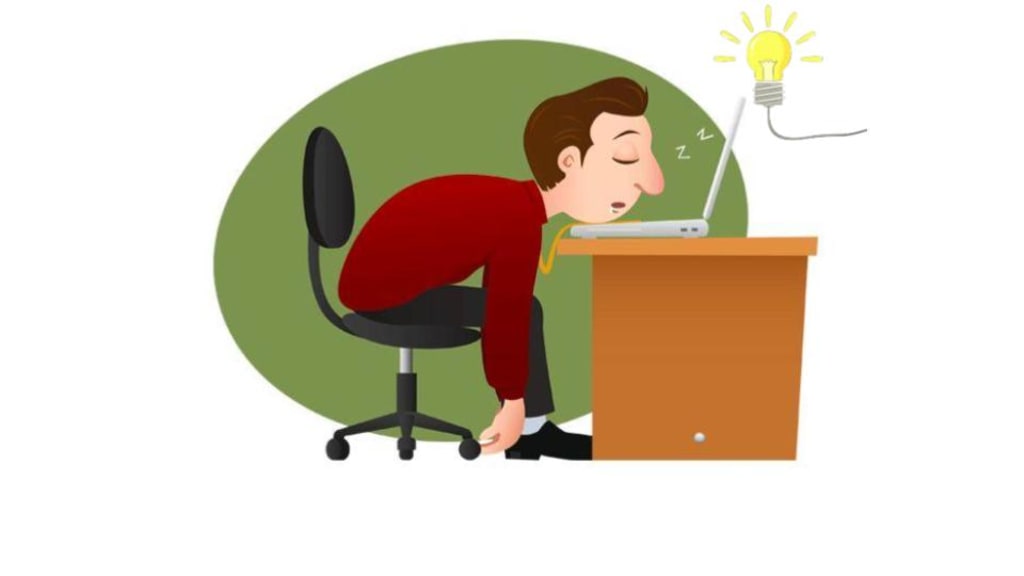IS POOR SLEEPING POSTURE/HABITS WORST THAN SMOKING
POOR SLEEPING POSTURE/HABITS

Sleep is a fundamental human need that is essential for maintaining physical and mental health. However, in our fast-paced and stressful modern world, many people struggle to get enough sleep, often sacrificing it in favor of work, social activities, or other distractions. Unfortunately, poor sleeping habits can have serious consequences for our health and wellbeing, and some experts even suggest that it may be worse than smoking.
One of the main reasons why poor sleep is so damaging is that it can increase the risk of a range of serious health problems. For example, people who regularly get less than seven hours of sleep per night are more likely to develop obesity, diabetes, heart disease, and stroke. Sleep deprivation can also weaken the immune system, making it harder to fight off infections and diseases.
Moreover, poor sleep can have a profound impact on our mental health. Chronic sleep deprivation can lead to depression, anxiety, and other mood disorders, as well as impair cognitive function and memory.
While smoking is a well-known health hazard, poor sleeping habits can be just as damaging, if not more so. Therefore, it is crucial to prioritize sleep as an essential aspect of our overall health and wellbeing. By establishing healthy sleep habits, such as maintaining a regular sleep schedule, avoiding electronic devices before bed, and creating a relaxing sleep environment, we can improve our physical and mental health and live happier, healthier lives.
Sleep is an essential part of our lives, and getting enough rest is crucial for maintaining good health. However, many people often neglect the importance of sleep and prioritize other activities over it. Unfortunately, poor sleeping habits can have severe consequences, and some experts even suggest that it may be worse than smoking.
Reasons for Poor Sleeping Habits in Persons
Getting a good night's sleep is essential for our overall well-being, but unfortunately, many people struggle with poor sleeping habits. There are several reasons why this can happen, and in this article, we will explore some of the most common factors that can affect our ability to sleep well.
Stress and Anxiety
Stress and anxiety can have a significant impact on our sleep patterns. When we are under stress or experiencing anxiety, our bodies release stress hormones, such as cortisol, which can keep us awake at night. Racing thoughts and worries can also make it difficult to fall asleep or stay asleep, leaving us feeling tired and groggy the next day.
Poor Sleep Hygiene
Poor sleep hygiene refers to habits and practices that can negatively affect our ability to sleep well. This includes things like using electronic devices in bed, consuming caffeine or alcohol before bedtime, and having an irregular sleep schedule. Creating a relaxing bedtime routine and establishing a consistent sleep schedule can help improve sleep hygiene.
Medical Conditions
Certain medical conditions can interfere with our ability to sleep well. For example, sleep apnea, a disorder in which breathing stops and starts during sleep, can cause interruptions in sleep and lead to daytime fatigue. Other medical conditions that can affect sleep include chronic pain, restless leg syndrome, and depression.
Environmental Factors
Environmental factors, such as noise, light, and temperature, can also impact our sleep. Loud noises or bright lights can disrupt our sleep, while a room that is too hot or too cold can make it difficult to get comfortable and fall asleep.
Medications
Some medications can interfere with our sleep patterns. For example, certain antidepressants and stimulants can make it difficult to fall asleep or stay asleep. If you are experiencing poor sleep due to medication, it's important to talk to your healthcare provider to discuss alternatives.
Poor Diet
Our diet can also play a role in our sleep patterns. Consuming large meals or spicy foods before bedtime can cause indigestion, making it difficult to sleep. Additionally, consuming caffeine or sugar close to bedtime can make it harder to fall asleep and stay asleep.
Here are some points to consider:
1. Increased risk of health problems: Poor sleep habits can increase the risk of various health issues, such as obesity, diabetes, heart disease, and stroke. Lack of sleep also weakens the immune system, making it harder to fight off infections and diseases.
2. Negative impact on mental health: Chronic sleep deprivation can lead to depression, anxiety, and other mood disorders. It can also impair cognitive function and memory.
3. Reduced productivity: Poor sleep habits can have a significant impact on productivity, as it can lead to fatigue, lack of focus, and decreased motivation.
4. Driving safety: Drowsy driving can be as dangerous as drunk driving, and poor sleep habits can increase the risk of accidents on the road.
5. Overall impact on quality of life: Poor sleep can impact all areas of our lives, including relationships, work, and social activities, leading to a decrease in overall quality of life.
In conclusion, poor sleep habits can have severe consequences and should not be taken lightly. By prioritizing healthy sleep habits and seeking help if needed, we can improve our physical and mental health, productivity, and overall quality of life.
About the Creator
Emediong Edward
Content writer and SEO specialists






Comments
There are no comments for this story
Be the first to respond and start the conversation.